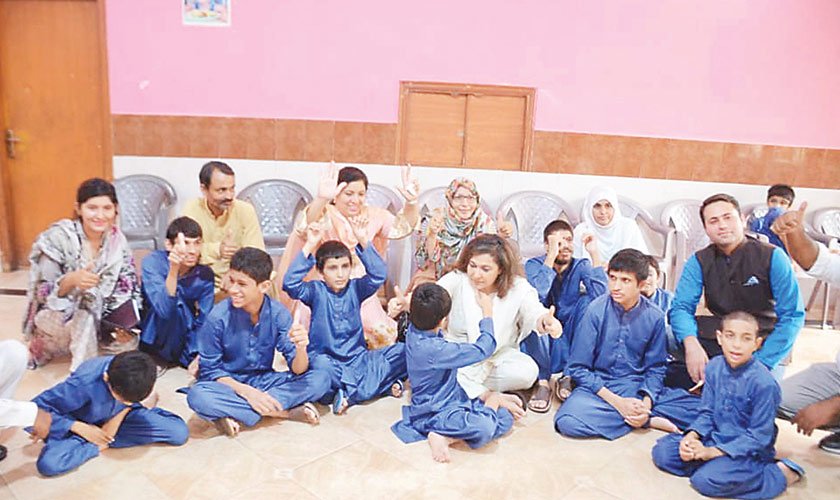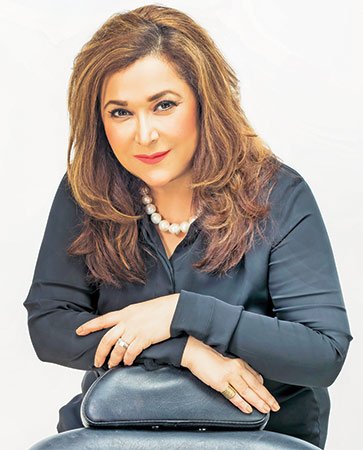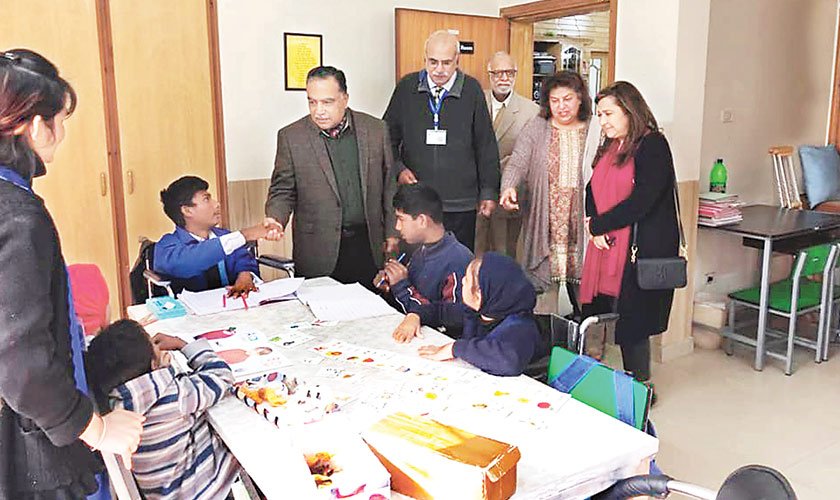
According to a WHO report, one in four people in the world will be affected by mental or neurological disorders at some point in their lives. Mental disorders are among the leading causes of ill-health and disability worldwide even though treatments are available. But, nearly two-thirds of people with a known mental disorder never seek help from a health professional due to stigma, discrimination and neglect. Dr Zarqa Suharwardy Taimur, renowned consultant aesthetic cosmetologist, is one of the few people working towards this cause.

Dr Zarqa has three boys but takes out time to focus on giving back to the society. Having a special child herself is what brought her closer to the subject. “My youngest child is a wonderful source of happiness for us and everyone he ever meets. I try to inspire people to take out time if they have children with learning disabilities. Sadly, in Pakistan people shut their children at home and are in total denial,” she tells. “The availability of services to people with special needs is the most precarious factor, they are divided into four categories- the blind, deaf, mentally and physically challenged people. Out of these four categories three are mentally normal and even those who are slightly mentally challenged can function as normal members of society. So globally, the effort and view are of inclusiveness. Even the WHO millennium development goals and sustainable development goals talk about inclusive education which means that we need to include everyone regardless of their religion, colour or race. The same education should be for all,” she enthuses.

Dr Zarqa is a Gold medallist and consultant in Aesthetic and Anti-Aging medicine. In 2011, she was amongst the first few in the field of aesthetics in Pakistan. She has been trained in USA, UK Middle East and Pakistan. She has been on faculty of Otago University, New Zealand and is currently an examiner with the Royal College of Physicians of Ireland.
Highlighting and promoting sustainable development No 4, Dr Zarqa has started her own initiatives to contribute to the society, “My organisation ‘Twenty One Up’ is working to spread awareness on special children with Down syndrome and their parents who need constant help on one-on-one basis with the challenges. So, the focus is to work towards people’s acceptance of special children as having equal rights as any other children,” informs Zarqa.
“Moreover, Pakistan in the last few years has been traumatised greatly and this figure goes up in our case. Our need of the hour is to face this adversity and not just waive off this important issue. For this, we have started this organisation called CHAMPS, led by UK psychiatrist Dr Shakil Malik, which is changing hearts and minds in Pakistan. It focuses on the younger generation who are unable to cope with pressures and drug dependence. We help by spreading awareness in the country and modelling universities to promote drug free campuses. We have also started getting offers from educational institutions to initiate projects with them including counselling of students,” she adds.
Apart from having initiatives of her own, the cosmetologist has also been working with the Punjab Government and Minster of Welfare in an effort to improve special care. Her political and social activism is also very much part of her life other than cosmetology and social work. “I made a pressure group ‘Jinnah Ka Pakistan’ when I came to Pakistan but soon realised that Pressure Groups don’t work here until they are funded. So, I decided to join the political platform. At that time in 2010, Imran Khan’s vision and sincerity inspired me. Getting a position or an office was never my interest but to simply be a part of change. I wanted to influence better decision making,” elucidates Dr Zarqa.
Expressing her views on the importance of social work, Dr Zarqa feels that Pakistani women have lost out on sensitisation to charity or giving back to the community. She also feels that it is necessary to inspire goodwill and change mindsets in order to contribute to the wellbeing of the society. “It’s not just about giving money but about your time and service to others. Unless you do that, you will never be able to feel a will for empathy. People who are not doing things for other people feel empty. The only way where you can be fulfilled is when you come out for others. We really need to inspire everyone who is lacking in this aspect. We need to understand that if there is one mentally ill patient in the society, he affects five other people around him; so actually, the entire population is affected by it. People are in a state of indifference or have become dehumanised. 30 per cent of the global population will have a mental disease by 2020 according to WHO, so the impact of this will be immense,” states Dr Zarqa.
Issues related to mental health can impact different people in different ways. If you start seeing changes in your happiness and relationships, there are always ways to get the support you want. It’s about time that you do so as well…




